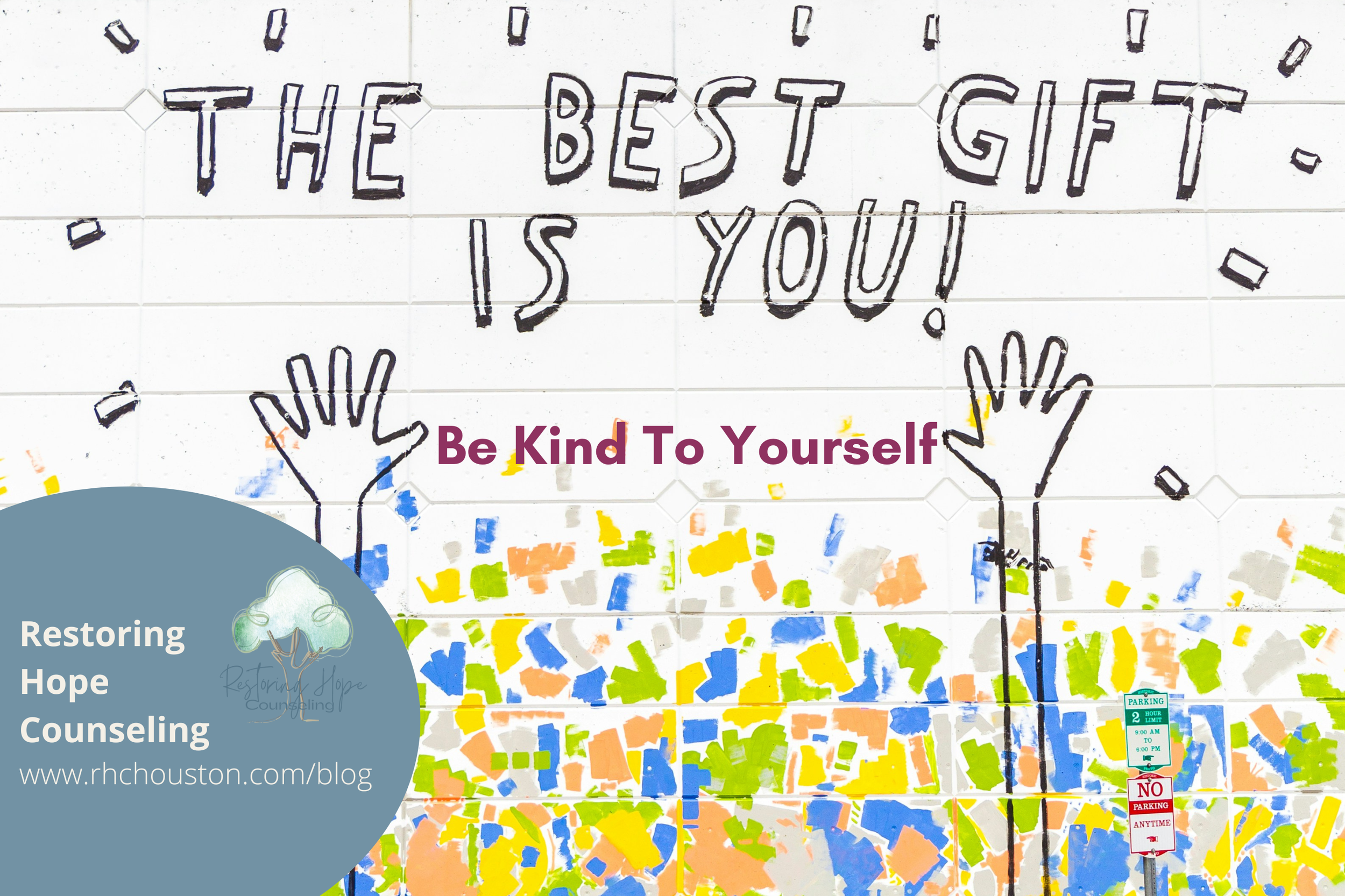
Blog
Worth
“I am worthy. “
Some days I can believe these words to be true, but other times it feels like a relentless battle and an unnecessary headache. Am I worthy? How do I define my worthiness? Is it in the way I look? What I am to do? How others see me? Asking myself these questions has made me realize that I may not fully understand what worthy is, or what it is I am hoping I am worthy of.
We are all Craving Something
As a therapist, I work with all types of people, teens, men, women, and couples, I have discovered there is one main thing we all have in common.
Every single person who exists or has existed at one point or another has one desire that at is at the core of who they are. It doesn’t matter how they grew up, what they experienced, how privileged they were, what race they are, or what gender. There is one thing that everyone desires.
Be Kind To Yourself
Giving yourself grace involves treating yourself with kindness, compassion, and understanding, especially during times of difficulty or failure. It's about recognizing that everyone makes mistakes, experiences setbacks, and has imperfections, but that these do not diminish your worth.
Purpose of Questions in Therapy
Therapy is a structured and confidential process designed to help individuals address personal challenges, explore emotions, and work towards positive change. Here's what you need to know about therapy and privacy:
You might ask yourself, what is the purpose of asking certain questions in therapy? Therapists ask questions to gain a deeper understanding of your concerns, history, relationships, and goals.
This information helps them provide personalized guidance and support tailored to your needs.
Therapists are trained to maintain professional boundaries and respect your privacy. They will not ask intrusive or inappropriate questions without a valid therapeutic reason. If you feel uncomfortable with any question, you can express that to your therapist.
There are no Taboos in Mental Health!
Taboos in mental health refer to societal stigmas, misconceptions, or cultural norms that discourage open discussion, acknowledgment, or acceptance of mental health issues. These taboos can contribute to feelings of shame, isolation, and reluctance to seek help among individuals experiencing mental health challenges. Reducing these feelings associated with mental health taboos requires a multi-faceted approach that addresses societal attitudes, promotes awareness and education, and fosters supportive environments.
Los tabúes en salud mental se refieren a estigmas sociales, conceptos erróneos o normas culturales que desalientan el debate abierto, el reconocimiento o la aceptación de los problemas de salud mental. Estos tabúes pueden contribuir a sentimientos de vergüenza, aislamiento y renuencia a buscar ayuda entre las personas que experimentan problemas de salud mental. Reducir estos sentimientos asociados con los tabúes de salud mental requiere un enfoque multifacético que aborde las actitudes sociales, promueva la conciencia y la educación y fomente entornos de apoyo.
Surviving Uncertainty
If there is one thing that I think everyone can agree on at the moment it is that we are living through uncertain times. Between the craziness of what is currently going on and the uncertainty of what is going to happen, we are all way more vulnerable to stress, intense emotions, and other unpleasant mental health consequences. So how do we cope with this? How do we prevent ourselves from falling victim to this unpredictability?
Worth
“I am worthy. “
Some days I can believe these words to be true, but other times it feels like a relentless battle and an unnecessary headache. Am I worthy? How do I define my worthiness? Is it in the way I look? What I am to do? How others see me? Asking myself these questions has made me realize that I may not fully understand what worthy is, or what it is I am hoping I am worthy of.
Understanding “Self-” Words Series: Part 1
Growing up, you probably heard the word “self-esteem” a lot. How many times did your parents, teachers, and school counselors tell you how important it is to have healthy self-esteem? I’m sure you’ve heard many “self“ words: like self-compassion, self-acceptance, self-worth, etc. But what do those words really mean?
The Lies We Tell Ourselves
To the world, to your family, to your coworkers, to your friends, you probably look like you are full of confidence, that you have everything together. Your friends and family love you, they think you are amazing. They look up to you and even want to be you at times. They admire many things about you.
We are all craving something.
As a therapist, I work with all types of people, teens, men, women, and couples, I have discovered there is one main thing we all have in common.
Every single person who exists or has existed at one point or another has one desire that at is at the core of who they are.
It doesn’t matter how they grew up, what they experienced, how privileged they were, what race they are, or what gender.
There is one thing that everyone desires.









